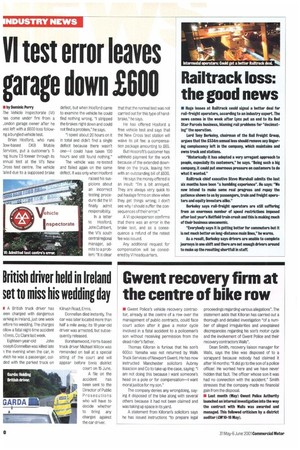Railtrack loss: the good news
Page 10

If you've noticed an error in this article please click here to report it so we can fix it.
• Huge losses at Railtrack could signal a better deal for rail-freight operators, according to an industry expert. The news comes in the week after Lynx put an end to its Red Star Parcels business, blaming rail problems for "decimating" the operation.
Lord Tony Berkeley, chairman of the Rail Freight Group, argues that the .£534m annual loss should remove any lingering complacency left in the company, which maintains and owns track and stations.
"Historically it has adopted a very arrogant approach to people, especially its customers," he says. "Being such a big company, it could put enormous pressure on customers to do what it wanted."
Railtrack chief executive Steve Marshall admits the last six months have been "a humbling experience". He says: "We now intend to make some real progress and repay the patience shown to us by passengers, train and freight operators and equity investors alike."
Berkeley says rail-freight operators are still suffering from an enormous number of speed restrictions imposed after last year's Hatfield train crash and this is making much of their business uneconomic.
'Everybody says It is getting better for commuters but It is not much better on long-distance main lines," he warns.
As a result, Berkeley says drivers are unable to complete journeys in one shift and there are not enough drivers around to make up the resulting shortfall in staff.
































































































